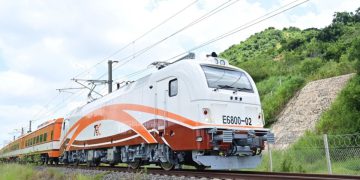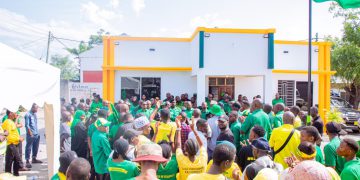

.jpg)
Poor water supply may persist in Dar es Salaam because the main water plant at River Ruvu, Coast region, which pumps water to the city cannot work to full capacity due to regular breakdowns, Parliament was told yesterday.
Most pumps of the 60-year-old system are worn out, leading to frequent breakdowns, partly due to regular power cuts which in turn affect the machinery.
Frequent water turbidity during the rainy season also allows the muddy particles to enter the pumps, further clogging the pumping machines already suffering from intense wear-and-tear. It is also difficult to get genuine parts for the plant in case of break downs.
Issuing the government statement on the state of water supply in Dar Salaam,the Minister for Water, Dr. Jumanne Magembe, told legislators here that the dilapidated water pump had failed to push the 82 million litres of its daily water supply to city residents.
“The main problem is caused by old machinery as well as frequent power cuts and other natural catastrophes,” he said.
The minister was responding to remarks by Ubungo MP John Mnyika (Chadema) May 12, this year, while contributing on the ministry’s budget estimates from the floor.
The minister said the demand for in the city was rising at a time when the aged machinery couldn’t adequately cope with the growing demand.Built between 1954 and 1956 to propel water to the city through a pipeline passing through Kibaha, some 40km from the city, the machinery is subdivided into four sets.
The first set comprises four pumps, each pulling water up some 21 meters down the river at Ruvu bridge, bringing at least 1.9m litres of water per hour.
The minister said the second set also has four pumps that push raw water from the river to some six kilometers at the rate of 1.4m litres per hour to Mlandizi where there is a purification tank.
The third set also has four pumps which push water 205m of water to the ground level before siphoning it to some 65km from Mlandizi to Kimara in Dar es Salaam. Each pump can push 1.2 litres of water per hour.
Dr. Magembe clarified that for about 67 days between the beginning of March and May 6 this year water supply to the city almost ground to a halt.
He said three raw water pumps broke down eight times, even as treated water pumps also broke down twice as a result of 15 cases of power cuts which led to nine hours and 58 minutes of power failure.
The system also suffered nine days of floods at the Ruvu valley which led to disconnections of some pipelines. At the same time, the auto-transformer also blew up due to abrupt power, causing two days of darkness from April 25, 2014.
There was also very high turbidity from 196 nephelometric turbidity units (NTU) to 1,102 NTU, which led to drastic reduction in operations.
In the wake of these challenges, the minister said water supply reduced from 57.4m to a mere 8.2m litres per day against its daily average of 82m million litres.
April 18 recorded the worst performance at a paltry 1.9m litres of water supply due to floods and power cuts – which virtually cut off supply to most city residents.
He said the government had since enlisted the support of local army technicians to make improvised spare parts instead of relying on genuine parts which are hard to come by whenever there is a breakdown.
The government will also continue buying the parts from the international markets, but whenever there are problems it advertises to the public through different media.
He added that repairs had often taken too long due to lack of required parts, citing a critical shortage of high carbon steel to make shafts for the pump and bearing housing cover.
The minister confirmed that the plant at the Upper Ruvu pump produced some 80.8m litres of water after refurbishment on May 17, 2014 – before it went down to 70.8m litres just two days later on May 19.
To ensure that water was well utilized, the government is prepared to control water theft at some parts of the city such as Kinondoni, Mwananyamala,Kigogo, Mabibo, Magomeni, Tegeta, Kiluvya, Mbezi and Kimara.

































